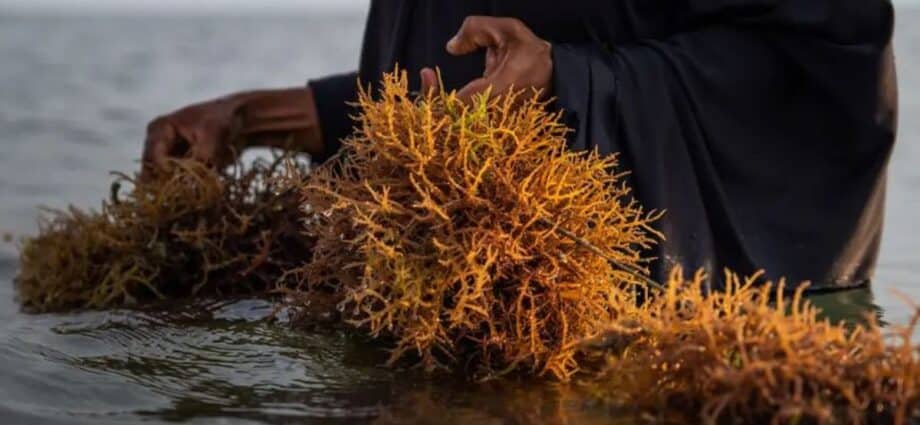Unguja. Seaweed farmers have reported that their crops are under attack by diseases, prompting them to appeal to the government and other stakeholders to do research in order to identify the main cause of the problem.
Speaking during a meeting involving development partners from the United Nations Development Programme (UNDP), the University of Dar es Salaam, and the Planning College on July 20, 2024, the farmers emphasized that if such diseases persist, there is a risk of losing direction in the seaweed farming industry.
For a considerable period, they have been grappling with diseases that prevent seaweed from growing, thus significantly reducing productivity.
Simni Haji, a seaweed farmer in Uroa Ward, lamented that they purchase seaweed seeds in good condition, but upon planting them in their fields, the seeds break into small pieces and eventually rot.
“We urgently request research on the causes affecting this crop; we are suffering losses because the seeds are rotting. Despite buying them in good condition, they fail to germinate. This issue has persisted for a long time,” he said.
Fatma Ali Rajabu, another seaweed grower from Chwaka Ward, noted that their village is affected by seaweed diseases, leading some farmers to completely abandon growing the crop.
Another seaweed grower, Ali Abdalla Ali, also Chwaka Ward, suggested initial steps should include exploring the possibility of providing alternative seeds to determine if the current seeds are causing the diseases.
He also appealed to agricultural experts in seaweed farming to regularly inspect their farms to determine the disease affecting the seaweed crop so that prompt action can be taken.
Further, the farmers requested for an increase in the price of seaweed, citing high farming costs such as purchasing stakes for planting a load of seaweed at Sh7000, one seed at Sh1000, and rope, resulting in losses instead of profits.
Christopher Mhando, Director of Blue Economy Coordination, explained that the purpose of meeting with seaweed farmers and sea cucumber and sea sponge breeders was to expand their operations to more beneficial areas.
He added that the government had deployed experts to assist seaweed and sea cucumber farmers including sea sponge breeders in overcoming various challenges affecting their activities.
Chief Fisheries Officer Mohammed Soud, from the Department of Fisheries Development and Marine Products, stressed the need for joint cooperation to eliminate illegal fishing, which contributes to the disappearance of certain fish species and increases the presence of pests that harm the seaweed crop.
“The government acknowledges the challenge posed by seaweed prices, which is why it is establishing the Chwamanangwe Pemba station to create price competition that will benefit both government and private companies, ultimately uplifting seaweed farmers across the country,” he said.
Veronika Sigalla from UNDP highlighted that the objective of meeting with the seaweed farmers was to explore ways to grow their crops internationally and enhance their value.
She emphasized that the seaweed growers play a crucial role in utilizing the sea, urging them to conserve the marine environment for greater benefits.
An Agriculture Coordinator, Dr. Banamas Mbasa, acknowledged the challenges in the quality of seaweed drying processes and announced plans for specialized training to educate farmers on improving drying methods to avoid quality issues and reduce market price fluctuations.















